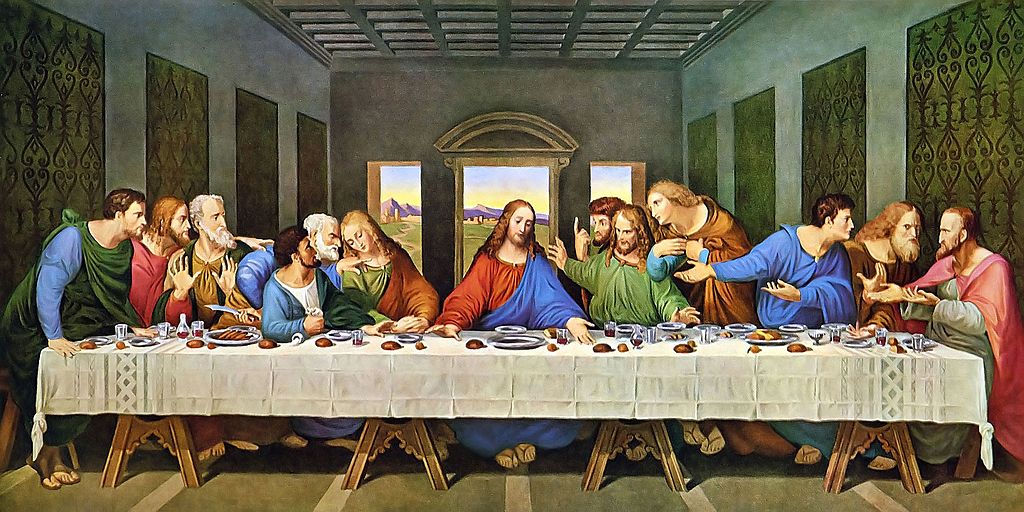
Passover - The Last Supper
by Da Vinci (Restored)
Today we remember one of the most important events in the Easter Story, The Last Supper, Jesus ordered it prepared and told them where to find a room that they could use. Before eating, he washed his disciples feet – teaching them about service, humility and love. Then he shared the Passover Seder with them. Passover celebrates God's redemption for the Jews from slavery in Egypt, but the coming of the Messiah completing God's salvation of them, is central to the Passover celebration.
The main feast of Passover for the Jews, this year has passed. Jesus was a Galilean (from what is now known as The West Bank' and as such, he and his disciples celebrated Passover earlier than the main body of Jews. Some Christians, in his honor, will celebrate it today.
Afterwards they went to the Garden of Gethsemane at the base of the Mount of Olives, where Jesus prayed, he was arrested there later that night. Today's readings therefore will cover, The Last Supper, The Garden of Gethsemane, and The arrest.
Paul called on the Corinthians to “keep the Passover”. There is some debate between Jews and Christians as to the meaning of the lamb at passover - whether it was a symbol of sacrifice for sin or a symbol of obedience of those who were already righteous. Either way as Christians, we are covered. Jesus paid the price for our sin, on our behalf before God and 'We are righteous before God in Jesus Christ'.
 Welcome
Welcome Calendar
Calendar Today's Word
Today's Word Lauds
Lauds Terce
Terce Sext
Sext None
None Vespers
Vespers Compline
Compline Matins
Matins